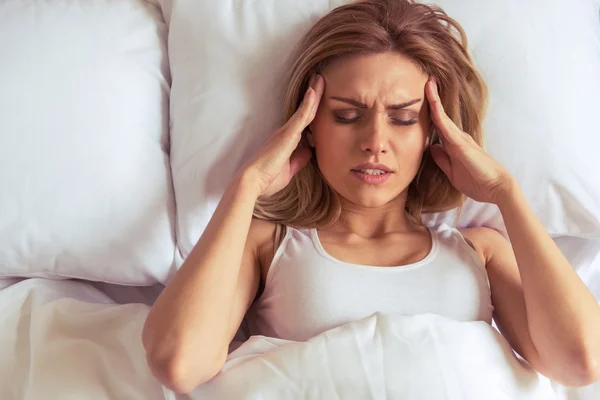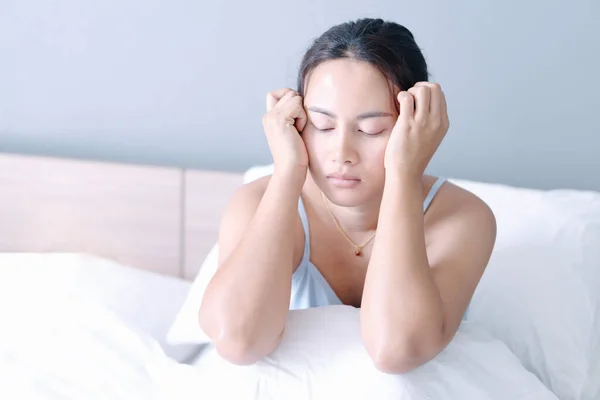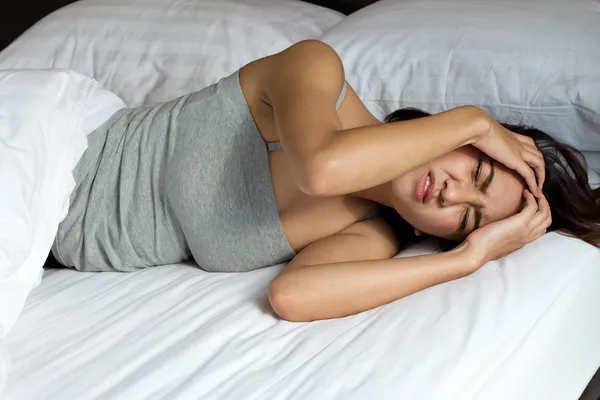Migraine attacks affect millions of people every year “How a Poor Night’s Sleep May Trigger Migraine Headaches” For millions living with migraines, the throbbing agony that disrupts their lives can strike seemingly at random. While triggers like stress, hormones, and certain foods are well-documented, the role of sleep often remains shrouded in mystery. Can a restless night truly set the stage for a splitting headache the next day? Recent research is shedding light on this intricate connection, offering both hope and practical strategies for migraine sufferers.

The Not-So-Silent Night: Prior Research on Sleep and Migraines
We’ve long known that sleep and migraines are intricately intertwined. Studies have consistently shown that inadequate sleep – whether due to late nights, shift work, or simply tossing and turning – significantly increases the likelihood of a migraine attack. In fact, research suggests that up to 80% of migraine sufferers report sleep disturbances as a trigger.
However, pinpointing the precise timing and specific factors within sleep that influence migraine onset has been elusive. Previous studies primarily focused on overall sleep duration, leaving a gap in understanding the nuanced interplay between sleep quality, energy levels, and the timing of migraine attacks.
New Study: Decoding the Sleep-Migraine Timeline
According to the American Migraine Foundation, around 37 million people (including both adults and children) in the United States experience these painful headaches. The study was published in the journal Neurology. Migraine attacks can be quite debilitating for people who experience them and oftentimes certain triggers can contribute to these headaches occurring.
Researchers in the new study took a closer look at potential migraine triggers. Their study required participants to track multiple metrics daily, which set apart the study from prior research.
One of the key study findings showed that participants who perceived a reduced quality of sleep the night before had a 22% increased chance of a migraine attack the following morning.
Over two weeks, participants diligently logged their sleep quality, energy levels, mood, and, of course, the occurrence and timing of migraine attacks. This real-time data collection offered a much finer-grained view of the sleep-migraine relationship compared to traditional retrospective surveys.
The Revealing Findings: When Sleep Quality Takes a Dive, Migraines Take Flight
The study’s findings were both intriguing and hopeful. The researchers discovered a clear and statistically significant link between perceived poor sleep quality and an increased risk of experiencing a migraine the following morning. Participants who reported restless nights, characterized by difficulty falling asleep, frequent awakenings, or unrefreshing sleep, were 22% more likely to wake up with a throbbing headache.
According to the National Institutes of HealthTrusted Source, some symptoms of a migraine attack include severe pain on one side of the head as well as nausea and sensitivity to light. The attacks can last up to 3 days.
While there are migraine medications such as topiramate (Topamax) and sumatriptan (Imitrex) to help prevent these headaches from occurring or lessen symptoms, they are not 100% effective.
Researchers wanted to learn more about predicting and possibly preventing these attacks through tracking by mobile phone apps and electronic diaries.

The study had a participant pool of 477 people, with the youngest participant being 7 years of age and the oldest participant being 84 years of age. There were 291 female participants and 186 male participants, which the study authors mentioned set their research apart from prior work since other studies typically have mostly female participants.
The participants had to report their emotional state throughout the day in an electronic diary. The emotional states included:
- anxiety
- mood
- energy
- stress
The participants also reported on both their perceived sleep quality and sleep duration with mobile apps. The participants wore actigraphy monitors, which look similar to smartwatches and measured activity (including sleep times, wake-up times, and any sleep disruptions).
Researchers said this allowed them to see how the participants’ actual sleep time and sleep quality compared to how the participants perceived their sleep.
Beyond Quantity: The Nuances of Sleep Quality Matter
Another noteworthy finding emerged from the discrepancy between perceived sleep quality and actual sleep duration measured by actigraphy. While participants with migraines reported feeling less rested, their actigraphy data often showed no significant difference in total sleep time compared to migraine-free days. This highlights the importance of subjective sleep quality, encompassing factors like sleep depth, fragmentation, and the feeling of restoration upon waking, as crucial components in the migraine equation.
Unraveling the Mechanisms: Why Sleep Plays a Role
The intricate biological mechanisms underlying the sleep-migraine connection are still being unraveled. However, several potential culprits have emerged from research:
- Disrupted Circadian Rhythm: Sleep disturbances can throw off our body’s natural sleep-wake cycle, impacting the production of melatonin, a hormone crucial for regulating sleep and pain perception. Fluctuations in melatonin levels may act as a trigger for migraine attacks.
- Inflammation and Stress Hormones: Sleep deprivation is known to increase levels of stress hormones like cortisol and inflammatory markers. These elevated levels can contribute to the development and intensification of migraine pain.
- Altered Brain Activity: Studies suggest that sleep disruption can alter brain activity in regions associated with pain processing and sensory perception, potentially lowering the threshold for migraine triggers.
Taking Control: Sleep Strategies for Migraine Prevention
Understanding the link between sleep and migraines empowers us to take proactive steps towards managing these debilitating headaches. Here are some practical sleep hygiene tips for migraine sufferers:
- Maintain a Consistent Sleep Schedule: Go to bed and wake up at roughly the same time each day, even on weekends, to regulate your circadian rhythm.
- Create a Relaxing Bedtime Routine: Establish calming rituals before sleep, such as taking a warm bath, reading a book, or practicing light stretches, to signal to your body that it’s time to wind down.
- Optimize Your Sleep Environment: Ensure your bedroom is cool, dark, and quiet to create an ideal sleep haven. Minimize screen time before bed, as the blue light emitted from electronic devices can disrupt sleep patterns.
- Limit Stimulants: Avoid caffeine and alcohol, especially close to bedtime, as these substances can interfere with sleep quality.
- Seek Professional Help: If sleep difficulties persist, consult a healthcare professional for personalized sleep management strategies.
By prioritizing sleep hygiene and adopting these strategies, you can become a more empowered conductor of your sleep symphony, potentially reducing the volume of migraine attacks and composing a more harmonious life.
Remember, while this research offers valuable insights, it’s important to consult your doctor for personalized advice and treatment plans if you experience migraines.
Read Also | How Probiotics and Prebiotics in Fermented Foods Impact Mental Health






